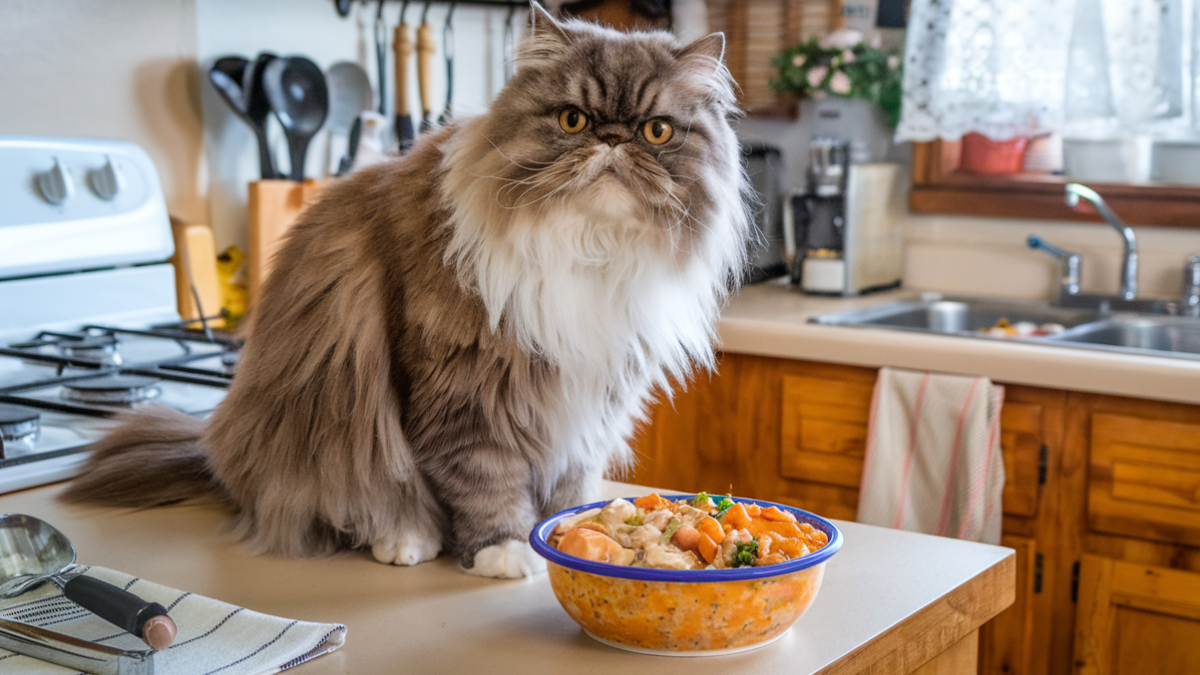The Benefits of Homemade DIY Wet Cat Food Recipes
Many cat lovers are exploring homemade wet cat food because it allows control over ingredients, avoids unnecessary fillers, and ensures freshness. With homemade wet cat food, you get total ingredient control—no fillers or preservatives, just wholesome nutrition tailored to your cat’s health and taste.
Homemade recipes provide more moisture compared to dry kibble, keeping your cat hydrated and supporting kidney health, especially for breeds like Persians. Plus, DIY meals can be customized to your cat’s specific dietary needs, whether they require more protein, omega-3s, or a gentle recipe for sensitive stomachs.
And of course, there’s the freshness factor—homemade cat food means fresh, quality ingredients every time, without the long shelf-life concerns of store-bought options.
Key Ingredients for DIY Wet Cat Food
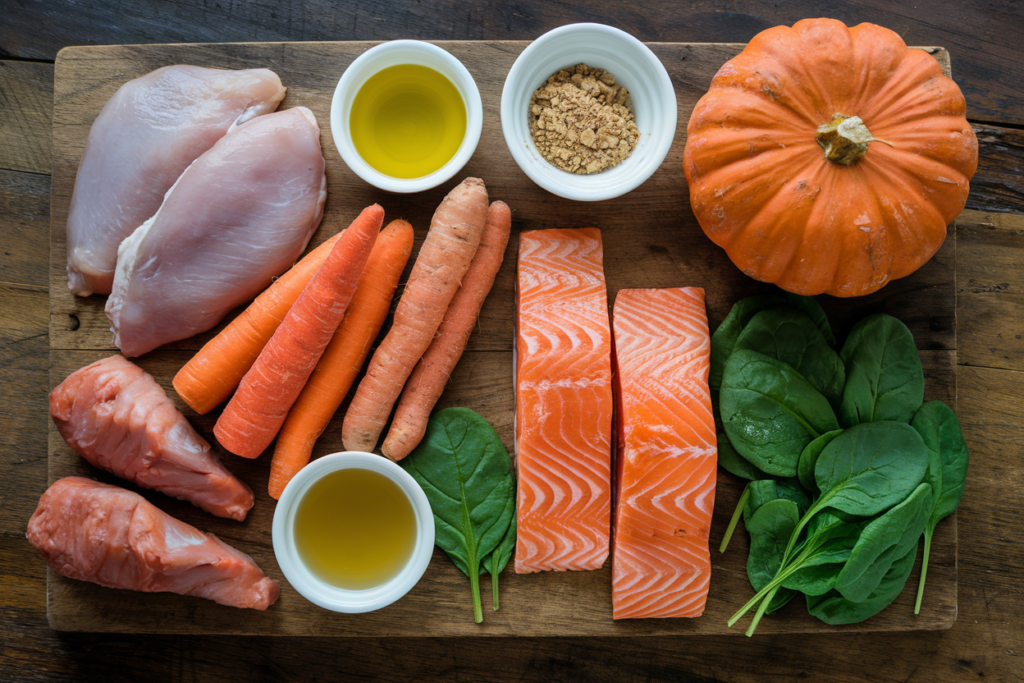
Before you don your chef’s hat and start cooking up a storm, it’s important to understand the essentials of crafting a balanced wet cat food. Here’s what you’ll need:
- Protein Sources: Cats are obligate carnivores, which means they need animal protein to thrive. Think chicken, turkey, lamb, fish, or beef.
- Healthy Fats: Fats, like salmon oil or fish oil, are rich in omega-3s, which are excellent for your cat’s skin and coat.
- Vitamins & Minerals: Don’t forget taurine! This essential amino acid is crucial for your cat’s heart and eye health.
- Optional Carbs: While cats don’t need carbohydrates like we do, a small amount of pumpkin or sweet potato can provide fiber and aid digestion.
10 Easy Homemade Wet Cat Food Recipes
Now that you’re ready to go homemade, let’s look at some simple recipes to get your cat purring with delight. These recipes are easy to make, use quality ingredients, and will have your kitty eagerly waiting for mealtime.
1. Chicken & Pumpkin Feast
- Ingredients: 1 cup cooked chicken breast, 1/4 cup pumpkin puree, 1/4 teaspoon taurine powder, 1/2 cup chicken broth.
- Instructions: Mix all ingredients until well combined. Serve fresh or store in an airtight container for up to 3 days.
2. Turkey & Sweet Potato Delight
- Ingredients: 1 cup ground turkey, 1/4 cup mashed sweet potato, 1/4 teaspoon fish oil, 1/4 cup water.
- Instructions: Cook the turkey thoroughly, mash with the sweet potato, add fish oil and water. Serve warm.
3. Tuna & Quinoa Mash
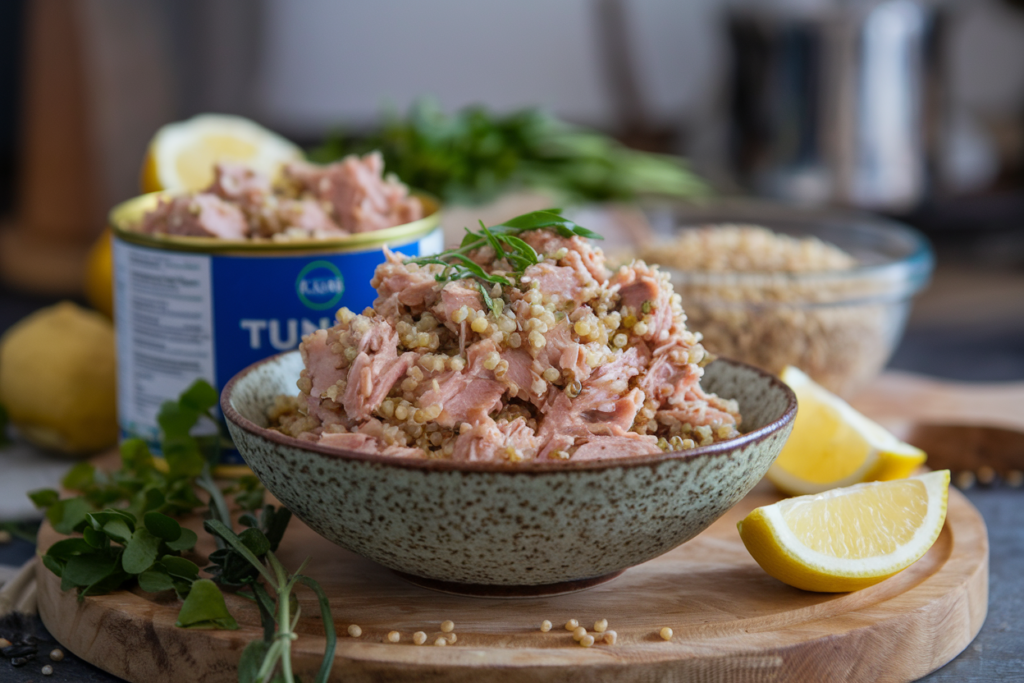
- Ingredients: 1 can tuna in water (unsalted), 1/4 cup cooked quinoa, 1/4 cup water.
- Instructions: Mix the tuna, quinoa, and water until you have a moist consistency. Serve immediately and refrigerate leftovers.
4. Salmon & Spinach Puree
- Ingredients: 1/2 cup cooked salmon (bones removed), 1/4 cup steamed spinach, 1/4 teaspoon taurine.
- Instructions: Blend the salmon and spinach, then mix in the taurine powder. Serve fresh.
5. Beef & Carrot Medley
- Ingredients: 1/2 cup cooked ground beef, 1/4 cup steamed carrots (mashed), 1/4 cup bone broth.
- Instructions: Combine the beef and mashed carrots, add bone broth for moisture, and mix well. Serve.
6. Duck & Zucchini Casserole
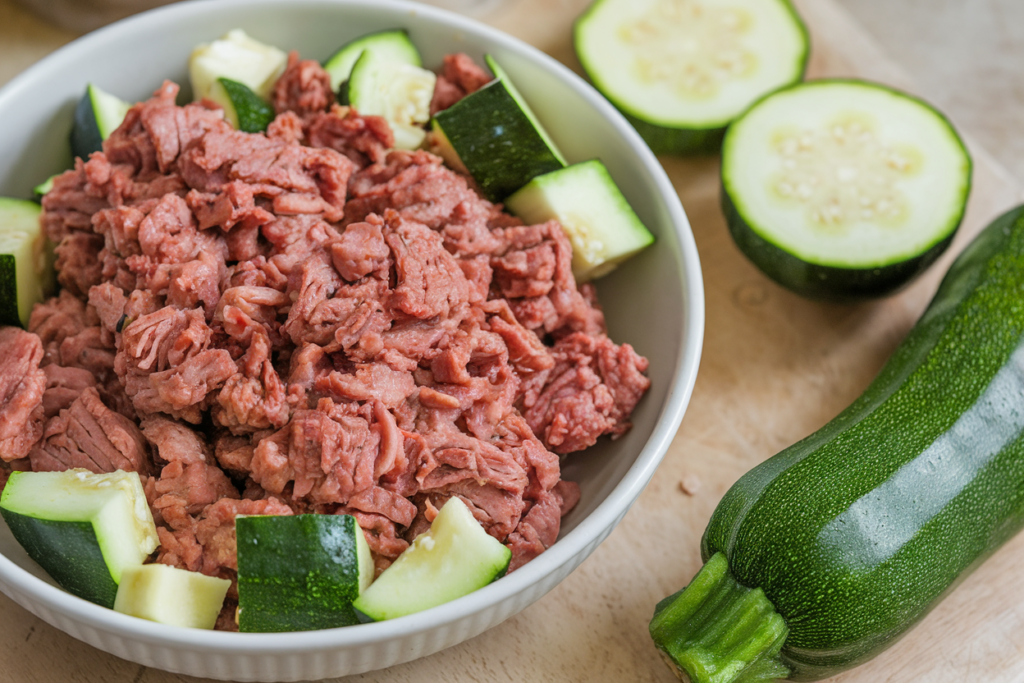
- Ingredients: 1/2 cup ground duck, 1/4 cup zucchini (steamed and chopped), 1/4 cup broth.
- Instructions: Mix the duck with zucchini and broth. Serve fresh or store for up to 2 days.
7. Lamb & Apple Treat
- Ingredients: 1/2 cup ground lamb, 1/4 cup grated apple (no seeds), 1/4 cup water.
- Instructions: Mix all ingredients until well combined and serve immediately.
8. Sardine & Oatmeal Mix
- Ingredients: 1/2 cup sardines in water, 1/4 cup cooked oatmeal, 1/4 teaspoon fish oil.
- Instructions: Mash sardines with oatmeal and mix in fish oil. Serve fresh.
9. Cod & Pea Puree
- Ingredients: 1/2 cup cooked cod, 1/4 cup peas (steamed and mashed), 1/4 teaspoon taurine powder.
- Instructions: Mix all ingredients until smooth. Serve immediately.
10. Chicken Liver Pâté
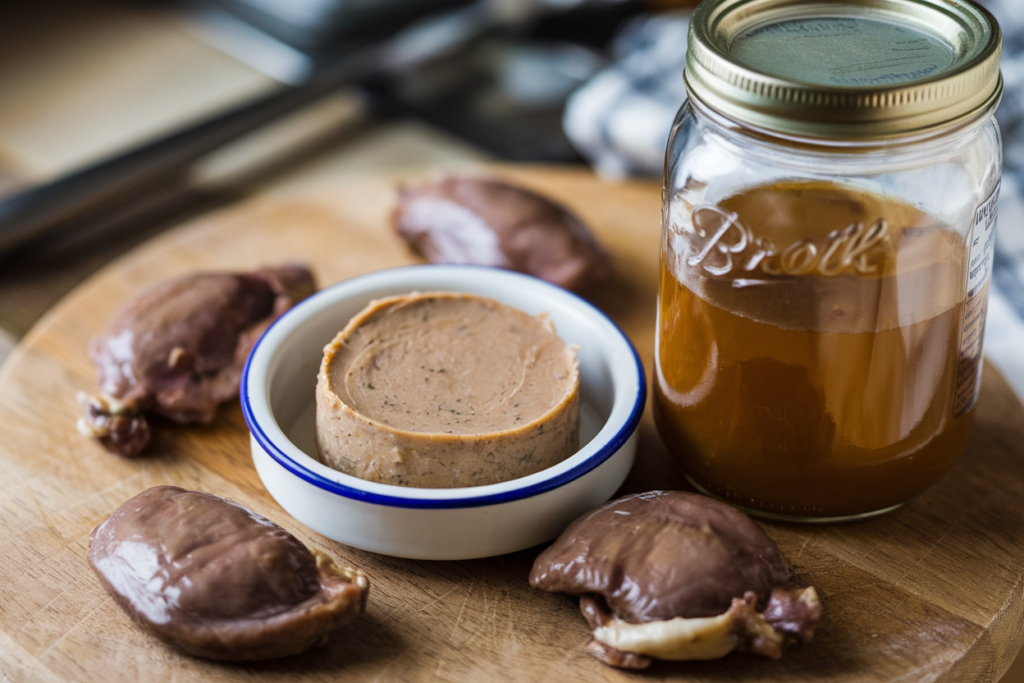
- Ingredients: 1/2 cup cooked chicken liver, 1/4 cup broth, 1/4 teaspoon taurine powder.
- Instructions: Blend the chicken liver with broth until smooth, add taurine, and serve.
Tips for Preparing Homemade Cat Food
Portion Control
Homemade cat food can be richer than commercial options, so it’s important to serve portions that are appropriate for your cat’s size and activity level. Overfeeding can lead to obesity, which brings its own health challenges. As a general rule, start with small portions and adjust based on your cat’s needs
Storage
Homemade wet cat food doesn’t contain preservatives, so it’s crucial to store it properly. Keep it in an airtight container in the refrigerator, and use it within 2-3 days to ensure freshness. You can also freeze portions if you’re making a big batch—just thaw them overnight before serving.
Transition Slowly
If your cat is used to commercial food, it’s best to transition gradually. Start by mixing small amounts of the homemade food with your cat’s regular diet, slowly increasing the ratio over a week or two. This helps avoid digestive upsets and gives your kitty time to adjust to the new flavors and textures.
Consult Your Vet
Every cat is unique, and while homemade cat food can be incredibly beneficial, it’s always wise to consult your veterinarian before making the switch. They can help you determine if homemade meals are suitable for your cat’s specific health needs and recommend any necessary supplements.
Wrapping Up: The Joys of Homemade DIY Wet Cat Food Recipes
Preparing healthy, homemade wet cat food at home can make mealtime more nutritious, fresh, and enjoyable for your furry friend. From simple chicken and pumpkin to adventurous lamb and apple, these recipes will not only keep your cat purring but also help ensure they’re getting the right nutrients to thrive.
Frequently Asked Questions
Can I switch my cat to homemade food immediately?
It’s best to transition gradually over a week to avoid digestive issues. Start by mixing small amounts of homemade food with their regular diet.
How do I store homemade wet cat food?
Store it in an airtight container in the refrigerator and use it within 2-3 days. For longer storage, consider freezing portions.
Do cats need supplements with homemade food?
Yes, cats require taurine, an essential amino acid. Always check with your vet to ensure the right supplement balance is being provided.
Can I use spices or seasoning in my cat’s food?
No, avoid using salt, onions, garlic, or any seasonings, as they can be toxic to cats.
Meet Sean, a fintech whiz with a penchant for pet purrs and blockchain buzz. After a decade of fintech feats, Sean’s tech talents leaped from ledger lines to litter lines, driven by a passion for pets and a vision for a more connected pet care community. With three critter companions as co-pilots, Sean launched this blog to share a treasury of pet-friendly tech tips and tales.

